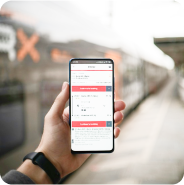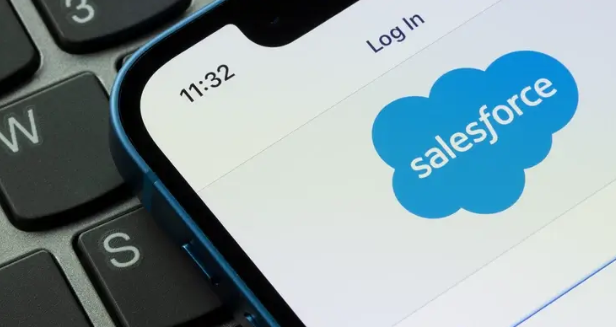Sales and marketing misalignment is one of the most expensive things that can happen to your company. Disconnected systems, unclear ownership, and inconsistent messaging can sabotage even the strongest sales and marketing strategies. But when both teams operate from a shared system like Salesforce, alignment becomes almost natural.
In this guide, we’ll explore 10 powerful ways Salesforce bridges the gap between sales and marketing. Plus, we’ll show how platforms like Conquer take these strategies to the next level by enabling real-time, omnichannel communication and execution directly within Salesforce.
Why aligning sales and marketing is more critical than ever?
As buyers become more informed and decision cycles become more complex, sales and marketing teams must work in lockstep. Today’s best-performing organizations focus on shared metrics, seamless communication, and personalized experiences. Misalignment isn’t just inefficient—it causes friction, slows down conversions, and erodes revenue.
Modern sales and marketing strategies need more than occasional collaboration. They need system-level integration. Salesforce makes this possible.
10 ways Salesforce aligns sales and marketing strategies
Every strategy listed below is actionable, scalable, and Salesforce-native—meaning your teams can implement them without switching tools or guessing workflows.
1. Unified customer data for a 360° view
Salesforce serves as a single source of truth. Every customer interaction—whether from an ad click, a webform, or a phone call—is logged and accessible. This shared visibility means marketing understands how leads progress, and sales knows the full story behind each opportunity.
When you add Conquer to the mix, you see that every inbound or outbound engagement—calls, emails, texts—is automatically logged to the correct record in Salesforce. Teams never lose context, and handoffs happen without guesswork.
2. Real-time lead tracking and scoring
Salesforce lets marketing score leads based on intent signals—downloads, site activity, email engagement—and pass them to sales once qualified. That means no more random lead dumping or subjective handoffs.
For example, when a lead hits a score threshold, Conquer can trigger an outbound call, voicemail drop, or text, ensuring real-time follow-up while the interest is hot.
3. Shared KPIs and dashboards
Salesforce dashboards allow both teams to track shared metrics—campaign performance, lead conversion rates, and pipeline velocity. It’s a system that keeps everyone accountable, providing maximum alignment between sales and marketing strategies.
You can even use Salesforce to see not only who converted but also how. Was it a call? A text? A voicemail follow-up? This level of detail helps teams double down on what works.
4. Automated workflows and alerts
With Salesforce automation, sales teams are notified when leads take meaningful actions—opening emails, requesting demos, revisiting the pricing page. These triggers eliminate delays.
By using Conquer, you can let Salesforce trigger a sequence that starts with a call, follows up with an email, and sends a personalized SMS—all based on that buyer’s exact behavior.

5. Centralized campaign tracking
Every marketing campaign lives inside Salesforce. That means sales can view campaign history, messaging, and CTAs before reaching out—ensuring personalized and timely outreach.
This allows you to sync your sales scripts, call cadences, and email templates with active campaigns for a unified, conversion-focused approach across the funnel.
6. Closed-loop reporting
Salesforce enables full-funnel attribution. Marketing sees which content or ads brought in the best leads. Sales gets clarity on which touchpoints converted.
This is especially helpful when you consider the fact that Conquer enriches these insights by logging the actual sales conversations. You’ll know which campaigns led to meaningful conversations—and which didn’t.
7. Streamlined lead handoffs
Salesforce automates lead assignment based on territory, industry, size, or behavior. That means that no more leads can get “lost” in someone’s inbox.
With the Conquer edge, you can even go a step further—assign not just the lead but also the next action. Conquer routes the lead to the right rep and launches the first touch automatically, improving the changes of conversions.
8. Personalized outreach (at scale)
Salesforce allows segmentation and dynamic content personalization. That means sales reps can reach out with relevant messaging without starting from scratch every time.
This allows you to develop sales and marketing strategies built on multi-step, multi-channel sequences that personalize content using Salesforce fields. This way, every lead feels like they have a one-on-one experience.
9. Integration with ABM strategies
Account-based marketing relies on coordinated, high-touch engagement. Salesforce supports ABM by giving both teams insight into target accounts, decision-makers, and buying stages.
Bigger sales teams can even equip sales with Conquer’s omnichannel sequences tailored for ABM, helping them combine voice, text, and email for top-tier accounts. This is all tracked inside Salesforce, making it an invaluable tool for any sales stack.
10. Feedback loops through campaign influence
Campaign Influence Reports in Salesforce let marketing see which campaigns influenced closed deals. Sales can add comments, notes, and objections in context.
Conquer advantage: Reps can tag call outcomes, voice objections, or customer reactions right from the Conquer interface—feeding back real sales data to marketing in real time.
Wrapping up
When your teams align on goals, data, and execution, great things happen. Salesforce is the system that makes it all possible. Conquer brings that system to life by giving reps the tools to act—faster, smarter, and with better timing.
If your current sales and marketing strategies feel fragmented, it’s time to unify your stack. Reach out to Conquer and get a free demo today!





